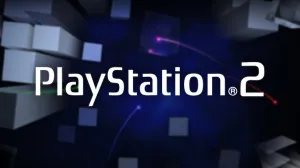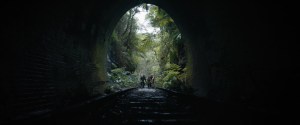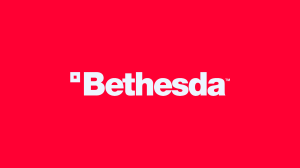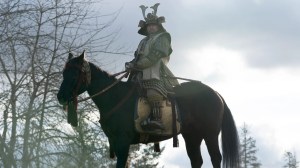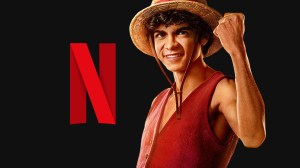Star Trek: Picard Season Two’s latest episode, “Watcher,” gave Jean-Luc a surprise meeting that likely surprised fans. [SPOILERS for the episode follow.] Jean-Luc Picard and his ad hoc crew have traveled back to the year 2024 to try to undo the alterations that Q made to the timeline, leading to the rise of the Confederacy in place of the Federation. They’re searching for a “watcher” who can supposedly help guide them where they need to go. Following coordinates given to him by the Borg Queen, Picard finds himself back at the Ten-Forward bar, where he had recently met with his old friend Guinan in Star Trek’s more familiar future.
Videos by ComicBook.com
In this episode, Guinan isn’t played by Whoopi Goldberg, but by Ito Aghayere, best known for her role on CBS’ Carol’s Second Act. Speaking to ComicBook.com, Aghayere says she had no idea she was auditioning to play Guinan or even for a part in Star Trek.
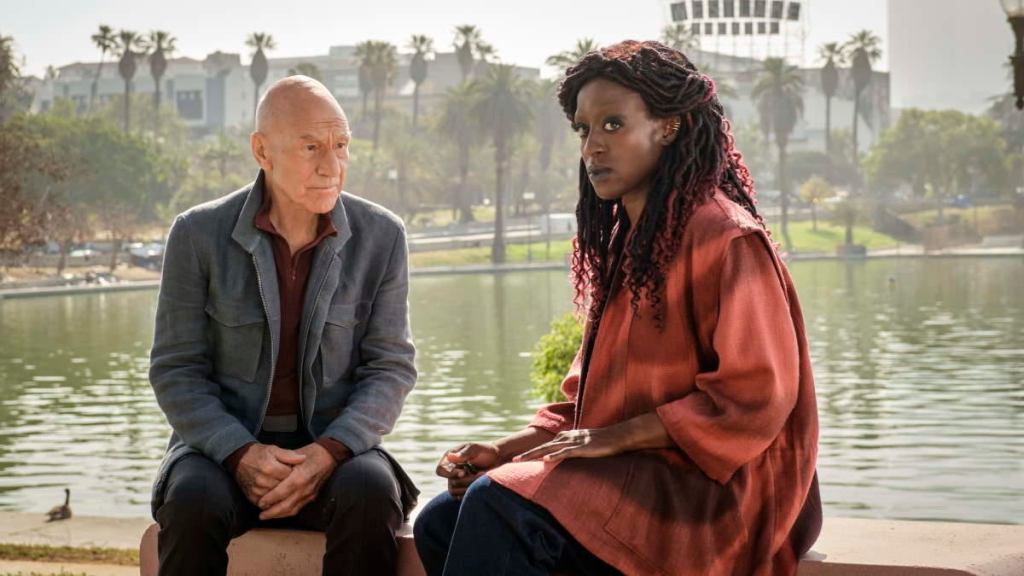
“No, at the time, my character was named Gwen, and I was trying to get a guy named John out of my bar,” she says. “I was packing it up, and he kept pestering me about something, and that’s all I had from the scene. All I knew was that I understood her bitterness and disappointment and her fear to hope in the world around her. That resonated really deeply with me as a Black woman, so I felt like the story put its tenterhooks in me. Then I found out it was Star Trek maybe a day before I was going to sit down with producers and flipped out a little bit.”
We also discussed something likely to be on the minds of longtime Star Trek fans, like Aghayere herself. How does this apparent first meeting between Guinan and Picard work with their previous first meeting in the 18th century in the Star Trek: The Next Generation episode “Time’s Arrow?” Aghayere puts her trust in co-showrunner Terry Matalas and thinks fans should as well.
“Terry Matalas is one of my favorite producers and writers because he wrote co-wrote 12 Monkeys, and it’s one of my favorite shows, all about time travel,” Aghayere says. “And I asked him about this. I was like, ‘Terry, I’m a fan of the show, and I don’t want to talk my way out of a job, but I would be remiss if, as a fan of the show, I didn’t mention, remember the Mark Twain episode? What are we doing with that?’… Terry was like, ‘Oh, don’t worry.’ He just answered everything. I think he mentioned the timelines. He said, ‘The key is timelines.’ So that’s all I’ll say about that in regards to the answer. It was thought about. And I think the answer is timelines.”
(If you — like me — were trying to figure out the logic in your head during the episode, it goes like this: “Time’s Arrow” predicated that Guinan first meets Picard when Picard travels back in time from the 24th century to the 18th century, creating a time loop. Aghayere’s Guinan hasn’t met Picard before because, even though Picard has traveled back in time again, this time to 2024, this is still the timeline that leads to the rise of the Confederacy, and decorated Confederacy General Jean-Luc Picard never made that trip back to the 18th century.)
During our conversation with Aghayere, we also touched on her longtime love of Star Trek and how the franchise holds a mirror up to real-world society. You can read our interview in full below:
Before playing Guinan, what was your relationship with Star Trek, as a view? Or a fan?
Ito Aghayere: I was raised by immigrants from Nigeria who were very protective, and there were very few shows that I was allowed to watch that they didn’t understand. Star Trek was one of them. They had no idea what was going on, but they were like, “This seems okay. Go ahead.” So I watched the show as a kid and watched all the reruns growing up. I watched Patrick, and any time I saw “special guest, Whoopi Goldberg,” I always looked forward to that because you knew it was going to be an incredible episode. I did, at least, because I loved her. I loved her character growing up.
How was the auditioning process? Was it a situation where you didn’t know who you auditioned to play? Or were they pretty straightforward about, “Hey, we need a Guinan? Would you like to play Guinan?”
I wish they did that, but they didn’t. No, at the time, my character was named Gwen, and I was trying to get a guy named John out of my bar. I was packing it up, and he kept pestering me about something, and that’s all I had from the scene. All I knew was that I understood her bitterness and disappointment and her fear to hope in the world around her. That resonated really deeply with me as a Black woman, so I felt like the story put its tenterhooks in me. Then I found out it was Star Trek maybe a day before I was going to sit down with producers and flipped out a little bit.
It was one of those moments like, “What?” When I thought about it again, I was like, “No, that makes sense. That’s what Star Trek does.” Even when I was a kid, I understood it in a way. I didn’t really get it until years later when I would rewatch episodes and realize. That episode “I, Borg,” there’s this episode that I would always think about when I was a kid with Hugh that he says… I’m not sure if you remember that episode, it was one of my favorites, where this Borg named Hugh, really sweet, endearing alien. Guinan’s character doesn’t like him. And as a kid, I was just like, “Oh, she just doesn’t like him.” But the story of that scene resonated with me differently as an adult because it’s so much deeper. It’s so much more layered. It’s not that she doesn’t like him; it’s that his people killed off her people, and she has no home because of him. But also, a whole other layer to it that I didn’t get as a kid was that they are both the same. They are both survivors in a way, even though they were once enemies.
And so once I realized it was Star Trek, and I think back to episodes like that, Star Trek does that, layers and all of this reflective kind of awareness about the world in which we live, that comes to you in waves, and so it made sense.
Once you did learn who you were playing, how did that change your approach to the performance? Especially considering how of the moment many things Guinan talks about in this episode are?
It took it deeper because I realized, okay, if I’m Guinan 400 years removed from Whoopi’s Guinan, then that means that when I rewatched her episodes, one of the things that I kept looking at was the characteristics that I loved about watching her throughout my childhood and even now, the enigmatic, kind of mischievous, playful, omniscient qualities that she brings to the character. What would that look like in somebody who’s 400 years more immature, 400 years more inexperienced, 400 years more bitter? What does that look like?
And that’s what I leaned into for my Guinan of 2024. So removing all of the experience and all of the, perhaps, awareness that Whoopi’s Guinan has to give my character somewhere to grow into.
Did you get to work with Whoopi at all? Did she have any input to help you grasp the character and what this version of her at this point in time would be?
I actually didn’t work with her. Because of the nature of the pandemic, a lot of the work that we had to do, anybody who was taping on Star Trek, it was all out of sequence. And Whoopi has a daily talk show and all of that. So I didn’t have the opportunity to meet her. I do hope for that one day, but one of the things that we did communicate to each other, the producers and all that, was hair, what my hair would look like 400 years removed from her Guinan. And so we settled on the looks that we both have, which I think works really well in terms of the difference in time.
What was it like building a dynamic with Patrick Stewart? Was it like what we for your characters on screen, where there’s a bit of a knowledge imbalance given his familiarity with both characters?
It was very cathartic to work with him because he knows where our characters get to. He has all of the experience and knowledge, and intimacy that his Guinan has with him. Patrick brought that to the role. There was an instant friendship, an instant camaraderie that we stepped into. In between takes, we’re joking and laughing and sharing stories from when we were kids and things like that, and then we’re back into 2024 Guinan’s walls, and it’s, “Get out of my bar,” pointing a shotgun in his face.
And so there was this delightful tension that — in between takes when we don’t know each other when we are not shooting the scenes where we don’t know each other — it’s this camaraderie and let’s work on a puzzle together and let’s just play as people and then we’re in the world where we don’t know each other. I think it created this fertile ground where, I hope, at least people who are fans of the show will be able to see the seeds of the relationship that they’ll have in the future.
Was Luna’s presence his idea? I know he’s fond of pit bulls.
You know, I actually don’t know. I’m not actually sure. I do know that we definitely wanted a pit bull. I love pit bulls, and of course, he does because he and his wife run a pit bull rescue organization. And so I’m not actually sure. I wouldn’t be surprised if it was his idea.
As someone who has been a longtime fan of Star Trek, how did filming a Star Trek show measure up to your expectations? Especially considering the episode is set in, more or less, the present day, which lacks all the usual spaceships and phasers and those kinds of trappings?
I have two answers to that question. Number one, because I didn’t know it was Star Trek originally, I fell in love with the story before I fell in love with, “Oh, it’s Star Trek, and so I really need to do this.” And so, because I fell in love with the story, discovering that it was Star Trek only made it more impactful because that’s one of my favorite things about Star Trek as an adult. Whenever you watch episodes, I love when they hold a mirror up to the world that we live in, in some way, and layer it. Some of my favorite episodes do that so well. And so when I discovered that the story I’d fallen in love with was going to be within that universe, the Star Trek universe, that made me really excited because that’s what I love the most about what TNG did growing up.
Working as an actor on Star Trek was just unreal because I was working with all of these incredible creatives, some of whom like James [MacKinnon], who handled special effects makeup, and blocked my eyebrows and did all the prosthetics in regards to that. Him and his team did all the prosthetics and all the things that you see in the show that are just incredible, real effects that take hours to do. And he had worked on the Star Trek movies and the series. He had been around for so long, and he’s one of many people who were so familiar with the series and the universe of Star Trek. So to be surrounded by people who are fans of the show, working on the show was surreal. It felt like most of the people who were creating the show were fans. And so I felt like I was amongst friends.
After watching this episode, fans, I think, will be asking about the Star Trek: The Next Generation episode “Time’s Arrow.” Did you all discuss it while working on Star Trek: Picard?
Terry Matalas is one of my favorite producers and writers because he co-wrote 12 Monkeys, and it’s one of my favorite shows, all about time travel, and I asked him about this. I was like, “Terry, I’m a fan of the show, and I don’t want to talk my way out of a job, but I would be remiss if, as a fan of the show, I didn’t mention, remember the Mark Twain episode? What are we doing with that?” Because even if you are on the show, you don’t necessarily read the scripts for the other episodes, so there are certain episodes that I have no clue what they’re about because I’m not in it, so I don’t know what’s happening. And so Terry was like, “Oh, don’t worry.” He just answered everything. I think he mentioned the timelines. He said, “The key is timelines.” So that’s all I’ll say about that in regards to the answer. It was thought about, and I think the answer is timelines. And I mentioned Terry’s tenure with 12 Monkeys because 12 Monkeys it’s a cluster-cuff of timelines and possibilities and probabilities, and I think that my Guinan can very easily be explained in regards to what they’re doing with the story where it comes to timelines. And I don’t want to spoil anything, but I’m just going to leave it there.
Lastly, Jean-Luc’s parting words to Guinan suggest that we’ll see more of your Guinan before the end of the season. Can you tease anything about what the rest of her story holds?
No, of course not. I could never.
This interview has been edited for length and clarity. Star Trek: Picard is streaming now on Paramount+.

